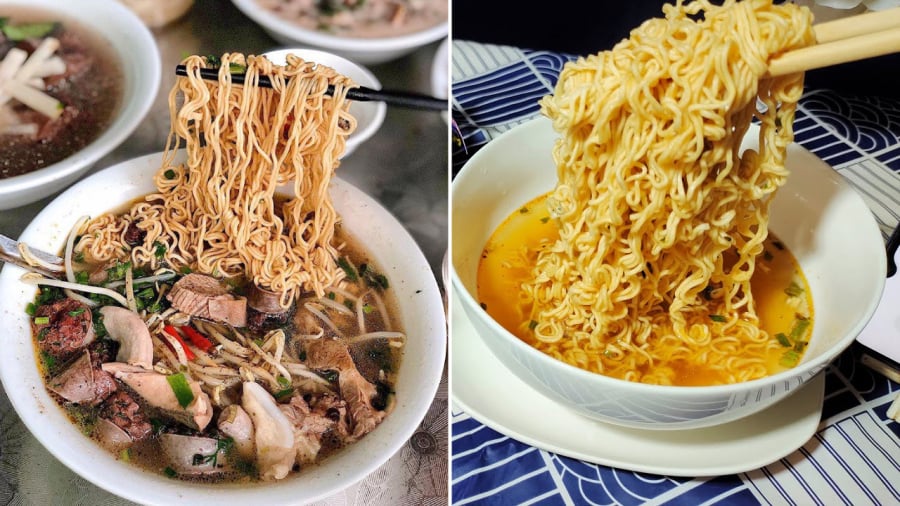Instant noodles are a convenient food option that, despite their simplicity, have gained widespread popularity. The basic way to prepare instant noodles is to place the noodles in a bowl, add boiling water along with the provided seasonings, and let them soak for about 3-5 minutes before consuming. However, eating instant noodles this way may not provide sufficient essential nutrients and can introduce some unhealthy substances into your body.
## Tips for Enjoying Instant Noodles Without the Negative Side Effects:
### Blanch the Noodles Before Cooking:
Instead of directly cooking the noodles in water, bring a pot of water to a boil and briefly blanch the noodles for about 30 seconds. Drain the noodles and discard the water. Then, in a fresh pot of water, cook the noodles with the provided seasonings to your desired doneness.
### Adjust the Provided Seasonings:
The seasoning packets that come with instant noodles often contain salt, oil/fat, and sometimes vegetable packets. It is best to use these seasonings sparingly. Avoid using the entire salt packet, as it can lead to excessive salt intake. You can also reduce the amount of oil/fat packet to limit the consumption of unhealthy fats.
### Enhance with Meat, Eggs, and Green Vegetables:
To make your instant noodles more nutritious and flavorful, add ingredients like chicken, pork, beef, eggs, bean sprouts, and green leafy vegetables. These additions provide essential nutrients and make the meal more substantial. Including green vegetables in your bowl of noodles can also help reduce the absorption of fats in your body. Remember that when cooking with these additional ingredients, you should add them to the pot before the noodles, as instant noodles cook very quickly.

## How Often Should You Eat Instant Noodles in a Week?
Instant noodles (also known as ramen or ramen noodles) are made from wheat flour, salt, and palm oil. The noodles are stretched into strands, steamed, and then either dried or fried. They are typically packaged with various seasoning packets. The standard preparation method involves soaking the dried noodles in hot water for about 3 minutes.
While most instant noodle varieties are high in calories, the energy they provide comes predominantly from refined carbohydrates and fat. Relying solely on instant noodles can lead to a deficiency in fiber and other essential vitamins and minerals.
There is no definitive research on the exact number of instant noodle servings one should consume per week. However, according to Master’s degree holder and doctor Trần Ngọc Lưu Phương, head of the Interventional Gastroenterology Unit at Nguyễn Tri Phương Hospital and lecturer at Phạm Ngọc Thạch University of Medicine, it is recommended to limit instant noodle consumption to a maximum of 1-2 times per week to maintain a balanced diet.
Instant noodles can be a valuable solution for addressing food needs and providing energy during emergencies, natural disasters, or in remote areas with limited access to other food options.
## Who Should Avoid Eating Instant Noodles:
### Individuals with Cardiovascular Diseases:
Instant noodles are often fried in shortening, a type of fat that contains trans fats. Consuming large amounts of trans fats can increase the risk of obesity and cardiovascular diseases. Additionally, the nutritional content of instant noodles is primarily composed of refined carbohydrates and fat, lacking in essential vitamins and minerals.
### People with Stomach Issues:
Instant noodles are heavily seasoned and can be difficult to digest. They tend to remain in the digestive system for extended periods, hindering nutrient absorption and metabolism.
### Individuals with Kidney Problems:
Instant noodles are high in sodium, both in the seasoning packets and the noodles themselves. For individuals with kidney issues, the high sodium content can be detrimental to their health.
































